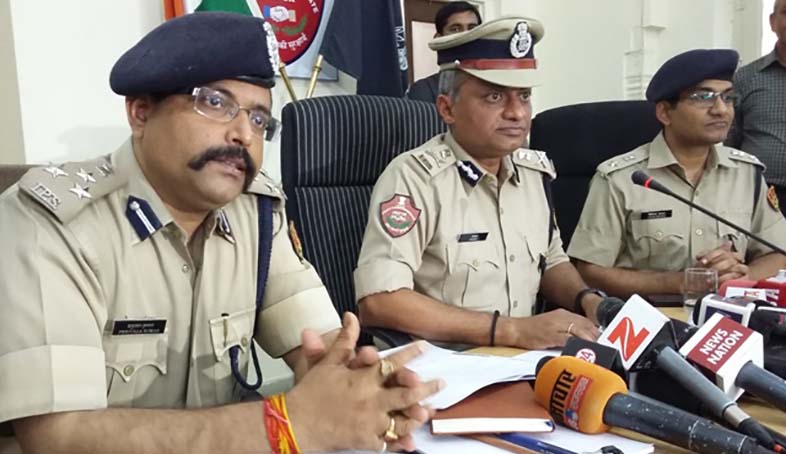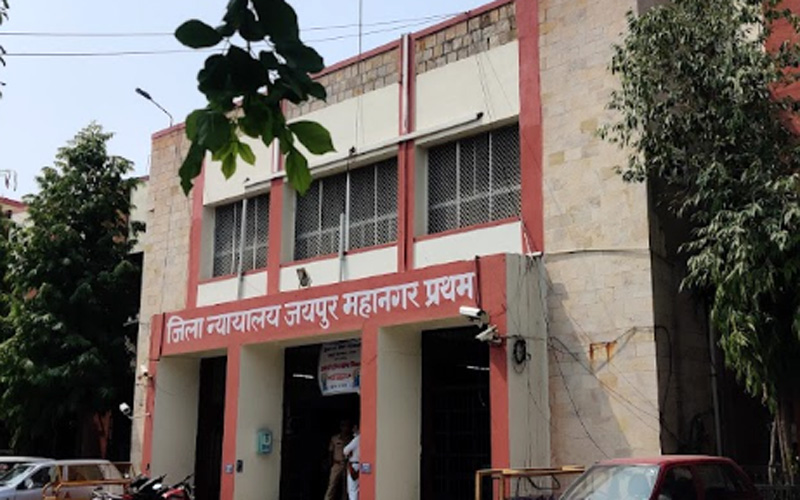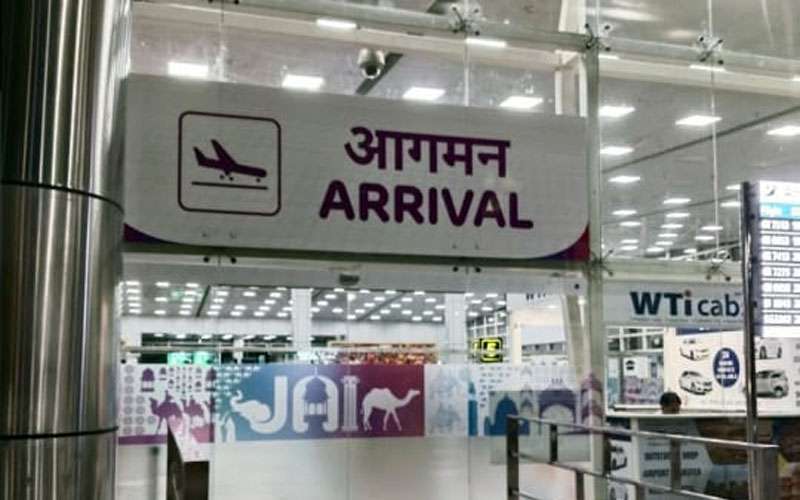ATM Frauds: ‘Preventive tactics’ to learn from a gang busted by police
Last Updated:

Jaipur police commissioner (in the middle) giving details of the gang's modus operandi
When the Jaipur police arrested six people from Maharashtra’s Pune and Mumbai recently, they called it the biggest ATM scam busted by the city’s cybercrime branch. This gang committed ATM crimes in almost every state in India. Posing as bank representatives, they called up at 85,000 people in a period of one year in India. Not only common men, but IAS officers have also fallen victim to these gangs. While the news got buried in the inside pages of local papers, there are some lessons you can learn on how these gangs commit ATM crimes, what type of ATM frauds you should be aware of and what preventive measures you can take to avoid being a victim.
Criminals were running a call center
This gang came under the scanner of the police when one Gopal Bairwa, a resident of Jaipur, registered an FIR. The cops came to know that the gang was operating out of Talegaon in Pune (Maharashtra). The police was shocked to learn that they were running a call centre and making thousands of call posing as bank representatives.
Jaipur police commissioner Sanjay Agarwal said that these fraudesters targeted people in almost every city. “They called up 3000 people in Jaipur alone,” Agarwal said.
How these gangs transfer money online from other bank accounts
This gang’s modus-operandi shows how criminals involved in ATM frauds operate:
- This gang bought a lot of SIM cards on the basis of bogus documents and registered e-wallets for each SIM card.
- They would call up the victim and extract necessary information from them including PIN number.
- They would have the victim verify the message sent to his or her mobile phone for the notification of the money transfer (OTP).
- They would then transfer money online from the victim’s bank accounts using e-wallets. They will send the money to e-wallets for online shopping and transfer it to their bank accounts.
Many mobile commerce platforms including Paytm provide the Immediate Payment Service (IMPS) facility for people to use their mobile wallets to transfer money into any bank account.
Police came to know that the gang was also offering 30-40% commission to mobile shop owners also. They would have the money transferred with help of these shop owners and get cash from them in exchange of commission. They would then deposit the money in their bank accounts.
How ATM frauds are committed (modus-operandi)
- The fraudsters call you posing as a bank representative (a bank manager in the case of this gang)
- They used a variety of pretext. Following are the five pretexts they used frequently:
- Your ATM card is being cancelled
- Your ATM card’s credit limit is being increased (funny pretext)
- Your ATM card is being linked to Aadhaar Card
- Your ATM has become old (not expired) and we are issuing a brand new card
- When did you withdraw money using your card the last time (If the victim hasn’t used the card for long, they would tell it is being cancelled due to misuse)
- The victim will tell the PIN card, CTV Number and OTP
- They will tell the victim that the OTP is his or her new PIN number and he or she share it with them so that they could maintain a record
- Using PIN, CVC number and OTP, the fraudsters transfer money from the victim’s bank account to their bank account.
What to learn from the modus-operandi of this gang
- Banks never ask you to share your PIN Number, CVC or OTP. The only exception is when you want to change your netbanking password on the concerned bank’s netbanking website.
- You can easily check your ATM’s expiry date
- If there is any issue with your ATM, you should visit your branch and talk to the bank representatives there directly. Even they can’t ask you details of your ATM card including PIN, CVC and OTP.
Police suspected that many of the victims of this gang didn’t even approach the police. Police commissioner Agarwal even appealed people to come forward and register a complaint.




